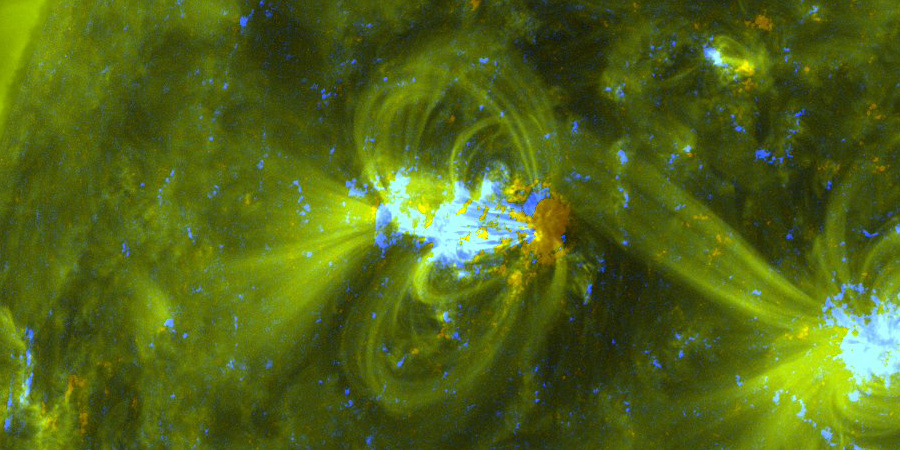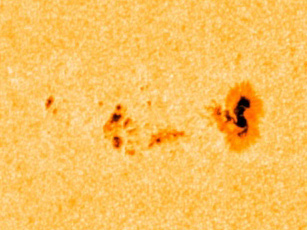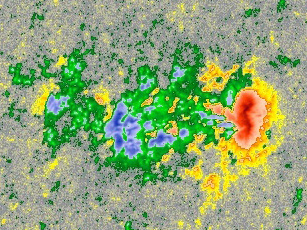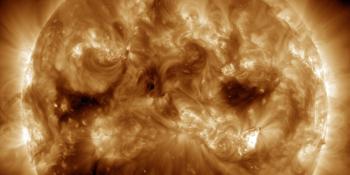Sunspot region 2628
Saturday, 21 January 2017 13:25 UTC

Our Sun is showing signs of life this morning as it produced two strong C-class solar flares.
It was sunspot region 2628 that produced an C9.3 solar flare at 07:26 UTC and an C6.1 solar flare at 11:08 UTC as you can see here on our solar flares page. The solar flares were impulsive and no coronal mass ejections were launched into space.
It is however an interesting sunspot region to keep an eye on in the days ahead especially now that we are in a period with very little solar activity. Up until today we had only one C-class solar flare this year! Sunspot region 2628 is an emerging sunspot region on the Sun's eastern hemisphere so if it continues to develop in the days ahead it might be in an earth-facing position when it lets loose a big solar flare.
But fair enough, that is just speculation at the moment as it is still a fairly simple sunspot region that we didn't really think would be capable of producing high-level C-class events. There is some magnetic mixing potential near its leader spot but it is not that complex yet. It is a Beta region, but a Beta region with potential. A low-level (R1) M-class solar flare does not seem likely but considering it already produced a C9 event, we should not exclude it. A bit more growth and magnetic mixing wouldn't hurt if we want to see strong solar flares but it is well worth keeping an eye on this region in the days ahead!


Images: Sunspot region 2628 as seen by NASA SDO in visible light and magnetogram. For an up-to-date view of sunspot region 2628 please keep an eye on this page.
Thank you for reading this article! Did you have any trouble with the technical terms used in this article? Our help section is the place to be where you can find in-depth articles, a FAQ and a list with common abbreviations. Still puzzled? Just post on our forum where we will help you the best we can!
Latest news
Latest forum messages
Support SpaceWeatherLive.com!
A lot of people come to SpaceWeatherLive to follow the Sun's activity or if there is aurora to be seen, but with more traffic comes higher server costs. Consider a donation if you enjoy SpaceWeatherLive so we can keep the website online!

Space weather facts
| Last X-flare | 2025/03/28 | X1.1 |
| Last M-flare | 2025/03/31 | M1.2 |
| Last geomagnetic storm | 2025/03/27 | Kp5 (G1) |
| Spotless days | |
|---|---|
| Last spotless day | 2022/06/08 |
| Monthly mean Sunspot Number | |
|---|---|
| February 2025 | 154.6 +17.6 |
| March 2025 | 127 -27.6 |
| Last 30 days | 127 -25.7 |


